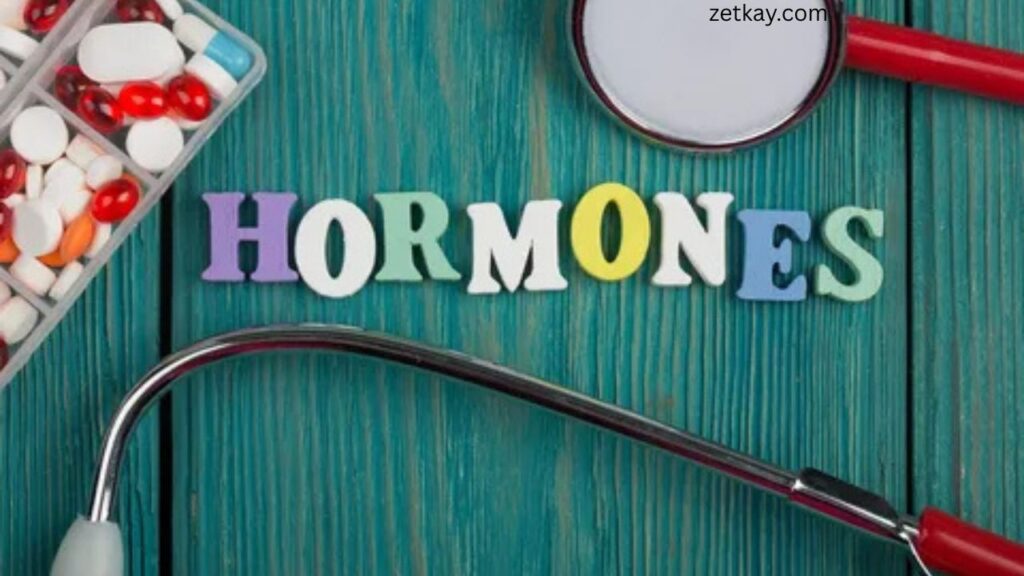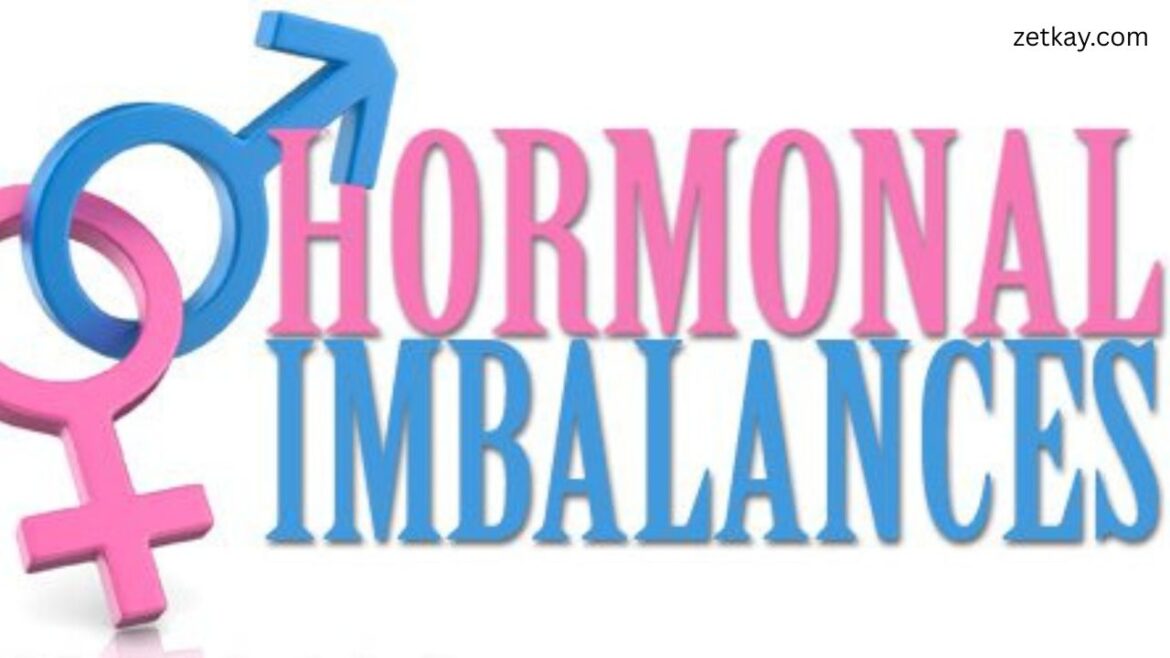Discover the top 7 warning signs of hormone imbalance in men, including fatigue, low libido, weight gain, and mood swings. Learn the causes, symptoms, and natural ways to restore hormone balance and boost energy, confidence, and health.
Introduction
Hormones are the body’s chemical messengers, controlling vital functions such as metabolism, mood, energy, muscle growth, and sexual health. When hormone levels become unbalanced, men can experience a wide range of physical and emotional symptoms. Hormonal imbalance in men is more common than many realize, especially with aging, stress, poor diet, or lack of sleep. Recognizing the early warning signs can help prevent serious health issues later on.
In this article, we’ll explore the top 7 warning signs of hormone imbalance in men, their causes, and how to restore healthy hormone function naturally.
1. Low Energy and Constant Fatigue
One of the first and most common symptoms of hormonal imbalance in men is persistent fatigue. Even after a full night’s sleep, you may still feel tired throughout the day.
This can result from low testosterone, thyroid dysfunction, or elevated cortisol levels (the stress hormone). Testosterone helps produce energy by supporting muscle health and red blood cell production. When levels drop, men often feel sluggish, unmotivated, and weak.
Other related symptoms include:
- Reduced physical endurance
- Difficulty concentrating
- Midday crashes or brain fog
If left untreated, hormonal fatigue can progress into chronic tiredness, affecting productivity and mood.
2. Decreased Libido and Erectile Dysfunction
A sudden drop in sexual desire or erectile performance is one of the most obvious signs of a testosterone imbalance. Testosterone is the primary male sex hormone that regulates libido, sperm production, and erectile function.
Men with low testosterone often notice:
- Reduced interest in sexual activity
- Difficulty maintaining erections
- Lower semen volume
- Fewer spontaneous erections
These symptoms can lead to stress, relationship problems, and lower self-esteem. Balancing hormones through proper diet, exercise, and sometimes medical therapy can significantly improve sexual health.
3. Unexplained Weight Gain and Muscle Loss
Testosterone plays a critical role in building muscle and burning fat. When hormone levels fall, men lose muscle mass and gain body fat, especially around the abdomen.
This occurs because low testosterone slows down metabolism and increases insulin resistance, leading to fat storage and reduced calorie burning.
Warning signs include:
- Noticeable belly fat
- Difficulty gaining muscle despite workouts
- Loss of strength or stamina
Maintaining healthy testosterone levels helps preserve lean muscle tissue, boosts metabolism, and supports an active lifestyle.

4. Mood Swings, Depression, and Irritability
Hormones don’t just affect the body they also influence the brain. Low testosterone or thyroid imbalances can alter mood-regulating chemicals such as dopamine and serotonin, leading to feelings of sadness, irritability, or even depression.
Men experiencing hormonal imbalance may notice:
- Frequent mood changes
- Anxiety or unexplained anger
- Loss of motivation or confidence
- Social withdrawal
Balancing hormones can help restore emotional stability and improve overall mental well-being. Lifestyle changes such as stress management, regular exercise, and better sleep are essential for emotional balance.
5. Sleep Problems and Insomnia
It could be a sign of hormone imbalance if you find falling or staying asleep difficult. Testosterone and melatonin work together to regulate your sleep-wake cycle. Low testosterone levels can disrupt this rhythm, leading to poor sleep quality.
High cortisol levels the body’s stress hormone can keep you awake at night, preventing proper rest and recovery. Poor sleep, in turn, worsens hormonal imbalance, creating a vicious cycle.
To support hormone health:
- Avoid caffeine late in the day
- Maintain a consistent sleep schedule
- Reduce stress before bedtime
Restorative sleep is one of the best natural ways to rebalance your hormones.
6. Hair Loss and Thinning Beard Growth
While genetics plays a role in hair loss, hormonal imbalance especially involving testosterone and its derivative DHT (dihydrotestosterone) is a major contributing factor.
DHT is responsible for male characteristics like facial hair and a deep voice, but when levels are too high or too low, it can trigger scalp hair thinning or patchy beard growth.
Common signs include:
- Receding hairline or bald spots
- Thinning beard or slower hair growth
- Increased hair shedding
Addressing hormonal imbalance can help slow or even reverse hair loss in some cases, especially when combined with proper nutrition and medical treatment.
7. Reduced Cognitive Function and Memory Problems
Hormones have a powerful impact on brain performance. Low testosterone, thyroid disorders, or excess cortisol can cause issues such as poor memory, difficulty focusing, and mental fog.
Testosterone supports healthy brain cell communication and protects against cognitive decline. When levels drop, men may struggle with concentration and decision-making.
Warning signs include:
- Forgetfulness
- Decreased attention span
- Slower thinking or response time
Restoring hormonal balance improves mental clarity, focus, and overall brain function.
What Causes Hormone Imbalance in Men?
Several factors can contribute to hormonal imbalance, including:
- Aging: Natural testosterone decline begins around age 30.
- Poor diet: Low protein, high sugar, and processed foods harm hormone production.
- Stress: Chronic stress elevates cortisol, disrupting other hormone levels.
- Lack of sleep: Reduces testosterone and growth hormone production.
- Sedentary lifestyle: Lowers metabolism and hormone sensitivity.
- Exposure to toxins: Chemicals in plastics and pesticides interfere with hormones.
Understanding these causes can help men take preventive steps toward hormone balance.
How to Restore Hormone Balance Naturally
Balancing hormones isn’t just about medication but a holistic lifestyle approach.
Here are some proven strategies:
- Exercise regularly: Strength training and HIIT boost testosterone.
- Eat healthy fats: Include avocados, olive oil, and nuts for hormone support.
- Reduce stress: Meditation and deep breathing help lower cortisol.
- Sleep 7–9 hours: Rest is essential for hormone regulation.
- Avoid alcohol and smoking: Both disrupt hormone production.
- Consider natural supplements: Zinc, magnesium, and vitamin D can help improve testosterone levels naturally.
Consulting with a healthcare professional for a hormone test is the best way to determine your current levels and develop a personalized treatment plan.
Final Thoughts
Recognizing the warning signs of hormone imbalance in men is vital for long-term health, energy, and well-being. From fatigue and weight gain to mood swings and low libido, these symptoms should never be ignored.
With the right lifestyle changes, medical guidance, and consistent self-care, men can restore hormone balance and regain strength, focus, and vitality at any age.
FAQs About Hormone Imbalance in Men
1. What are the most common signs of hormone imbalance in men?
The most common signs include low energy, decreased libido, weight gain, mood swings, sleep problems, hair loss, and poor concentration. These symptoms often occur when testosterone, thyroid, or cortisol levels become unbalanced.
2. What causes hormone imbalance in men?
Hormone imbalance can be caused by aging, stress, poor diet, lack of exercise, inadequate sleep, or exposure to toxins. Certain medical conditions, like thyroid disorders and diabetes, can also affect hormone levels.
3. How can I naturally balance my hormones?
To naturally restore hormone balance, focus on regular exercise, eating nutrient-rich foods, managing stress, improving sleep quality, and avoiding processed foods and alcohol. Zinc, magnesium, and vitamin D also support healthy testosterone levels.
4. When should I see a doctor about a hormone imbalance?
You should consult a doctor if you experience persistent fatigue, low sex drive, unexplained weight gain, or mood changes for more than a few weeks. A simple blood test can measure your hormone levels and guide proper treatment.
5. Can a hormone imbalance affect fertility in men?
Yes. Low testosterone or high estrogen levels can reduce sperm count and affect sperm quality, leading to fertility issues. Balancing hormones through lifestyle changes or medical treatment can help restore reproductive health.
6. Does stress cause hormone imbalance?
Absolutely. Chronic stress increases cortisol, interfering with testosterone and thyroid hormones, leading to fatigue, weight gain, and low libido. Managing stress through meditation, breathing exercises, or yoga can help keep hormones in check.
7. Can a hormone imbalance be reversed?
In most cases, hormonal imbalance can be reversed with the right lifestyle changes, nutrition, and medical support. Early detection and consistent healthy habits are key to restoring balance and improving overall well-being.
